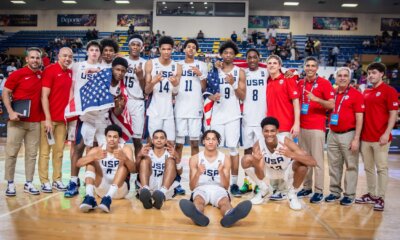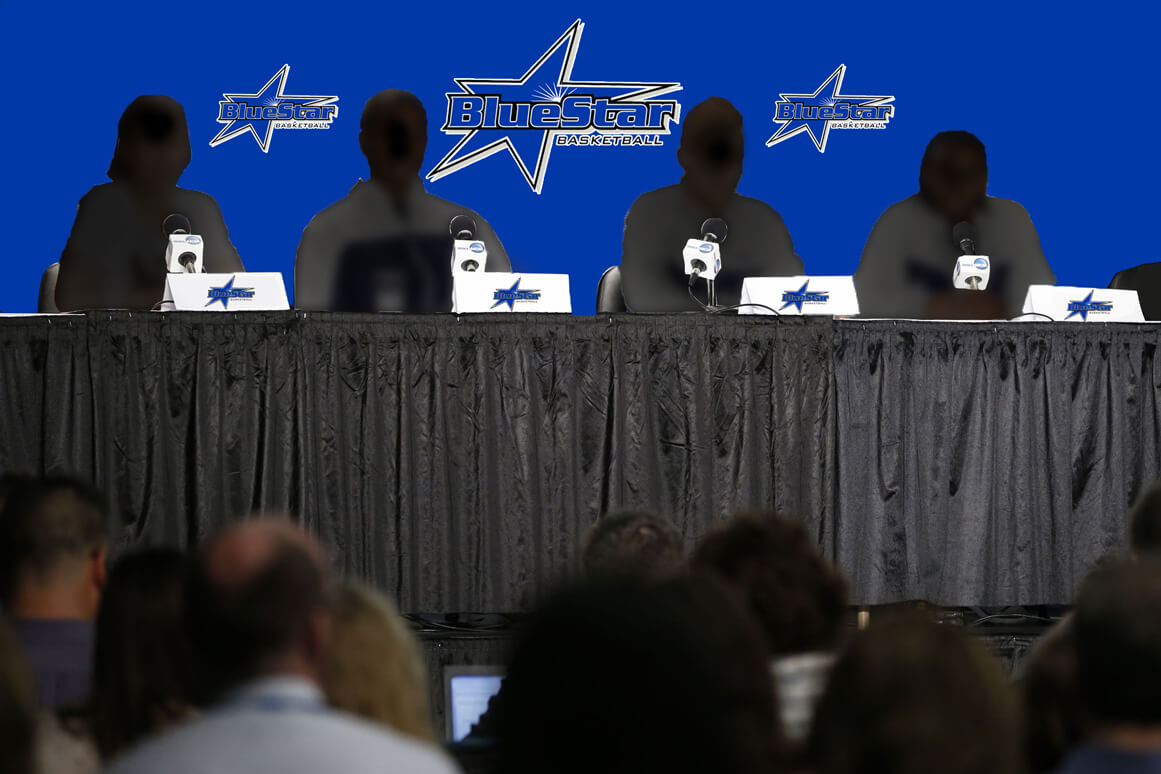Daisha Simmons practiced with her new teammates on Monday as Seton Hall was among the final NCAA Division I women’s basketball teams to formally get preseason workouts underway.
At the same time, her attorney filed a Title IX complaint against the University of Alabama in a transfer saga that grows more dispiriting by the day.
In a Q and A with the Swish Appeal women’s hoops blog, Montgomery attorney Donald Jackson is accusing Alabama of different treatment on the basis of gender, and citing the graduate transfer case of football player Jay Coker as an example.
Simmons wanted to employ the same graduate transfer waiver provision as Coker and use her final season of eligibility this year at Seton Hall, where she is pursuing an MBA degree. The Crimson Tide’s second-leading scorer a year ago (13.8 ppg), she was denied admission to Alabama’s MBA program in May, then sought a transfer. She also cited her brother’s advanced battle with renal disease in her desire to return closer to her New Jersey home.
Ultimately, the NCAA ruled that Simmons could play her final year at Seton Hall, but she would have to sit out this season. Earlier Monday, University of Alabama president Judith Bonner declined to reconsider the Simmons case.
As I mentioned on Friday, #FreeDaisha Simmons, a hashtag campaign on Twitter, has proliferated, and the likes of Jay Bilas, Fran Fraschilla, Seton Hall grad Dick Vitale and Keith Olbermann have chimed in, harshly denouncing Alabama and the NCAA for its transfer policies.
In the Swish Appeal interview, Jackson accused the Alabama women’s basketball coaching staff of harassing behavior in refusing to release Simmons from her scholarship: “This is pure intimidation and retaliation.” 
He said while Alabama complained of the timing of Simmons’ request, assistant coach Terry Nooner inquired with him at the same time about Leticia Romero, the former Kansas State guard Jackson represented in a nasty dispute this summer.
After heated national media attention, Romero has since been allowed to transfer to Florida State and will be sitting out this season.
Jackson said the particulars of the Simmons case are worse that Romero’s, “about as bad as anything I’ve seen in college basketball.”
It certainly can’t get much worse, but Romero and Daisha Simmons are just the latest women’s players to do through a horrific experience and a process that has them at a disadvantage at every turn.
In another highly-publicized case last year, Sydney Moss was initially denied a transfer from Florida to any other Division I program. Then it was other BCS programs. Ultimately, coach Amanda Butler denied her a release only to Kentucky. Moss is now at Division III Thomas More.
But many other players buckle under to the power of adults in anonymity, especially if they’re not players coaches are willing to fight over. As Florida travel team coach Kenny Kallina wrote Monday, it’s not just about what’s happening at one school:
“While Alabama for whatever reason has been the poster child for this issue it happens ALL THE TIME. I mean when I tell you what is going on at Alabama is like in the manual of how to handle these situations and what you do when you take over a program.”
Some of the misplaced Twitter outrage is downright silly. Shaming on social media is nothing new, and while it might be understandable in this case, the presumption that this will get stubborn minds to be changed is a bit far-fetched.
I’m not sure whether there’s really a Title IX case here or not, but Jackson doesn’t have many other options. Time is running out on getting Simmons cleared to play this season.
But Alabama looks absolutely terrible here, and the bad publicity can’t help the rebuilding efforts of head coach Kristy Curry, especially on the recruiting trail. A promotional poster with the Twitter hashtag #WhyKC (above), spelling out Curry’s “core values,” is not likely to quell the criticisms or undo the damage.
Putting up such a resistance to bar one player — albeit a good one — from a final season elsewhere, and who had mostly academic and family reasons for making a move, looks beyond petty. The question I would have for Curry and her staff is this:
Was it worth all of this?
Sunday and Monday were exciting days in women’s college basketball, as teams began preseason practices. Many have had, or will be having media days, and the first games of a new season are a little more than a month away.
But before those games begin, and the fate of Daisha Simmons and other players like her is cast aside, I have a question for those in leadership positions in this sport, and who really need to take a serious look at why so many contentious transfer issues are taking place now:
Is this what you want your sport to be known for?
Because that’s the reputation the game is getting.
Wendy Parker is a sportswriter and web editor who has covered women's basketball since the early 1990s. She is a correspondent for Basketball Times and formerly covered women's and college sports, soccer and the Olympics at The Atlanta Journal-Constitution. She is the author of "Beyond Title IX: The Cultural Laments of Women's Sports," available on Amazon, and the creator of Sports Biblio, a blog about sports books and history.

Latest Articles
-
Christopher Lawlor
/ 9 hours agoUSA Women’s U16 National Team throttles Venezuela, 113-52, at 2025 FIBA AmeriCup in opening pool game in Mexico
IRAPUATO, Mexico – The American tipped off in grand fashion on Monday, June 16....
-


Christopher Lawlor
/ 5 days agoNBPA Top 100 Camp moves venue but the top-notch talent, coaching still shines in South Carolina
ROCK HILL, S.C. — The National Basketball Players Association tipped off its annual elite...
-


Christopher Lawlor
/ 1 week agoUSA defeat Canada in FIBA U16 AmeriCup Final to lift the trophy for ninth time with a perfect mark; Nasir Anderson earns Most Valuable Player
CIUDAD JUAREZ, Mexico – The FIBA U16 AmeriCup 2025 throne has the United States’...
-
Christopher Lawlor
/ 1 week agoSPEARHEADED: Americans crush Brazil by 79 points at FIBA U16 AmeriCup quarterfinals; Marcus Spears Jr. puts up 16 points and 9 rebounds
JUAREZ, Mexico — The USA men passed its first test in the knockout stage...



